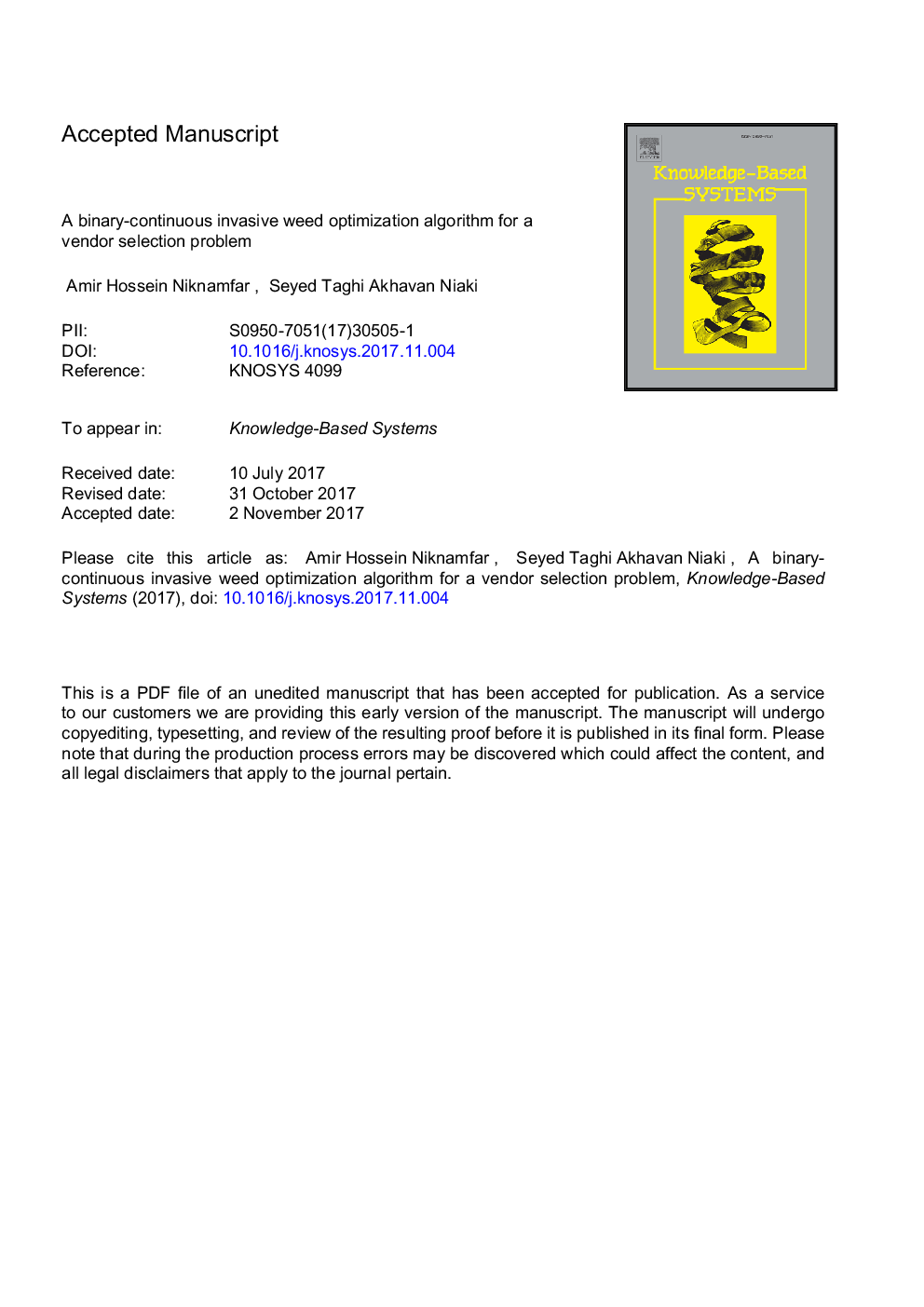ترجمه فارسی عنوان مقاله
الگوریتم بهینه سازی علفهای هرز دوزبانه مهاجم برای انتخاب یک فروشنده
عنوان انگلیسی
A binary-continuous invasive weed optimization algorithm for a vendor selection problem
| کد مقاله | سال انتشار | تعداد صفحات مقاله انگلیسی |
|---|---|---|
| 110210 | 2018 | 34 صفحه PDF |
منبع

Publisher : Elsevier - Science Direct (الزویر - ساینس دایرکت)
Journal : Knowledge-Based Systems, Volume 140, 15 January 2018, Pages 158-172
ترجمه کلمات کلیدی
انتخاب فروشنده، مقدار نظم اقتصادی، استراتژی چند منبع بهینه سازی علفهای هرز مهاجم، الگوریتم ژنتیک،
کلمات کلیدی انگلیسی
Vendor selection; Economic order quantity; Multi-sourcing strategy; Invasive weed optimization; Genetic algorithm;

